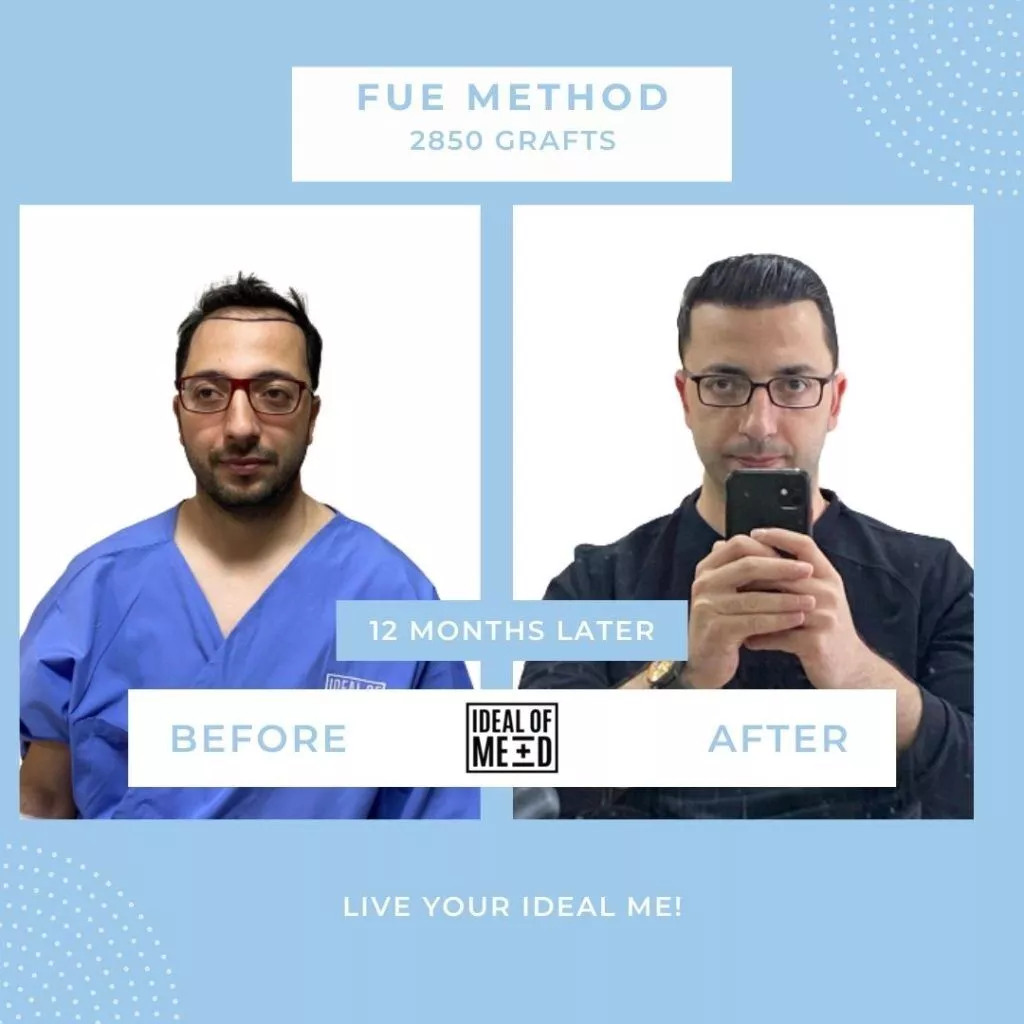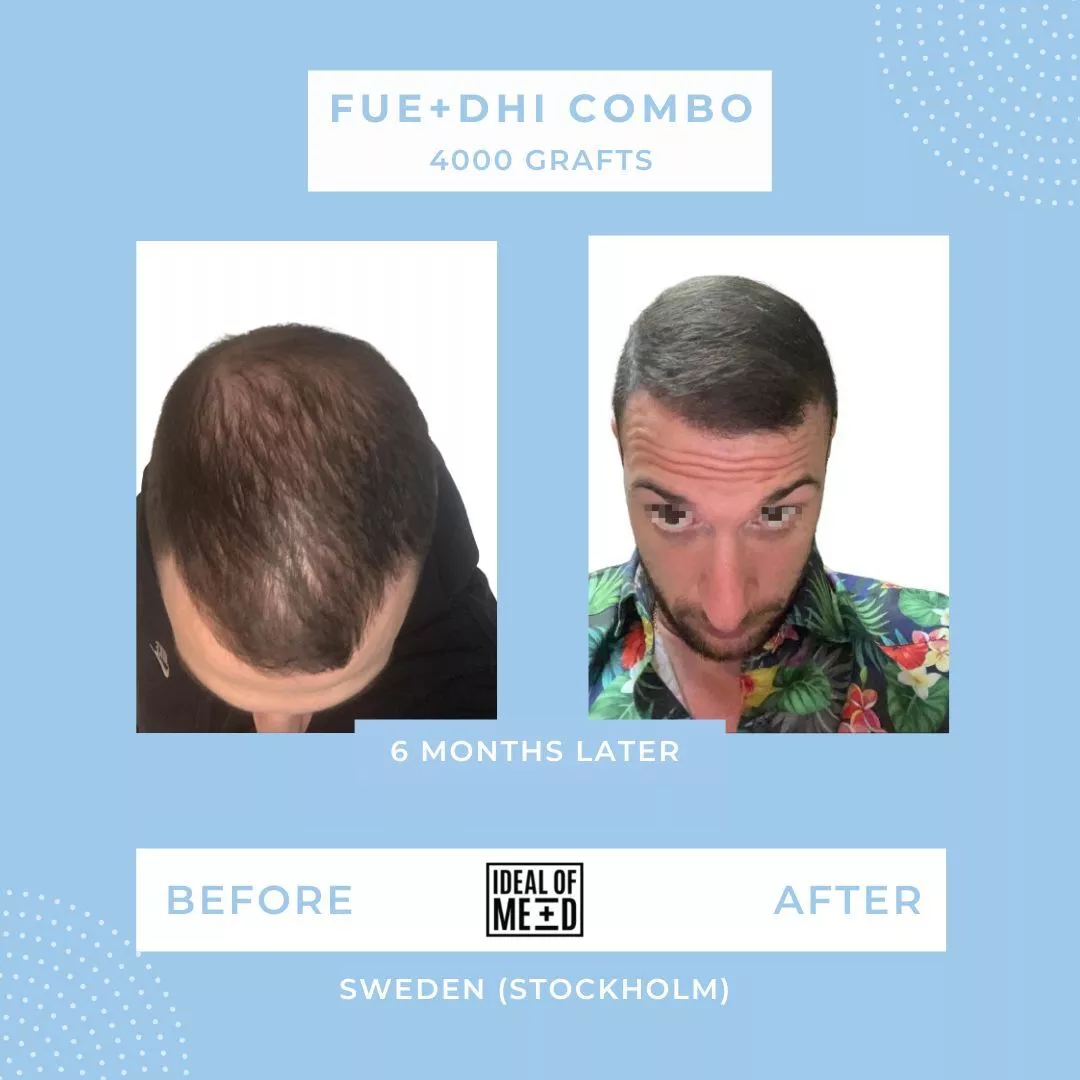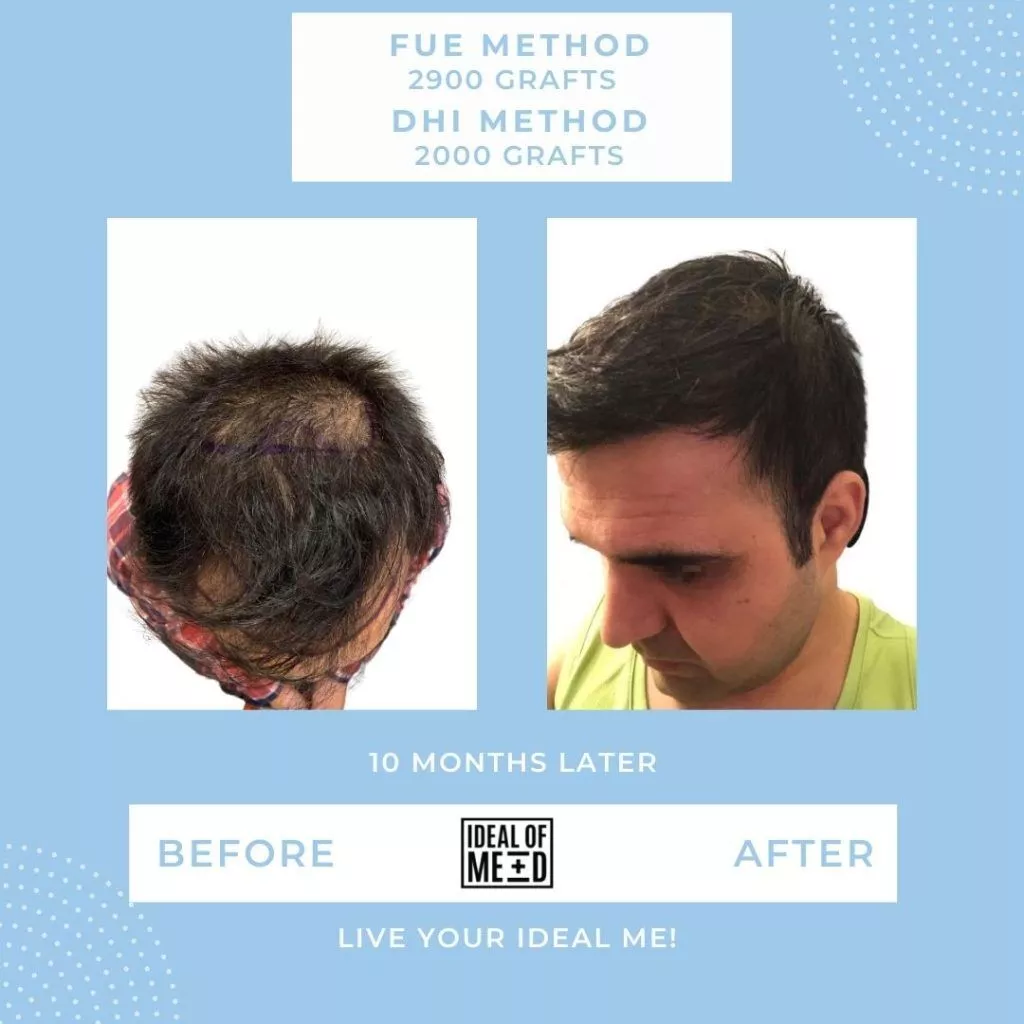Hair Transplantation Methods
- HAIR TRANSPLANT METHODS
Combination of FUE and DHI.
Perfect for bald patches.
Perfect for getting thicker hair.
Table of Contents
Different Types of Hair Transplantation Methods to Opt For
There are two main different types of hair transplantation methods that we’ll be going over today, namely, FUE and DHI. What’s better is that there is a combination treatment that combines two of these hair transplantation methods.
It will be easier for you to determine which procedure is the best option for you if you understand the differences between the various methods. If you’re unsure of which hair transplantation method would be the right choice, then either consult with a medical professional or book a free consultation at your preferred hair transplantation clinic.
FUE | Follicular Unit Extraction
People that tend to suffer with balding on their crown will often opt for the follicular unit extraction (FUE) method. When it comes to getting the FUE hair transplantation, you will notice that there are two different types of the FUE method. You get the standard FUE and the FUE Sapphire method.
The main difference between these two FUE hair transplantation methods is that the Sapphire method is a lot less invasive and uses a Sapphire Blade instead of a metal scalpel that the standard method uses.
Between the FUT and FUE hair transplantation methods, the FUT is starting to fall away due to its invasive nature, leaving people to choose a different method for their procedure.





DHI | Direct Hair Implantation
It is recommended that you consider the direct hair implantation (DHI) method if you’re struggling with hair that is thinning. A similarity can be found between FUE and DHI hair transplantation methods in terms of how follicular units are extracted from the donor area. The difference comes in with the insertion of the hair follicles.
Your surgeon inserts the extracted hair follicles into the desired location using a Choi Implanter when using the DHI method. These hair follicles are inserted between your already existing hair units without damaging the skin tissue in the surrounding areas.


FUE & DHI Combination Method by IdealofMeD
A very common occurrence when it comes to hair loss is having a balding crown with a receding hair line and thinning hair everywhere else. Now, many hair transplantation clinics will suggest you get both the FUE & DHI Combination hair transplantation methods on separate occasions. However, this can prove to get quite costly.
Thankfully, IdealofMeD offers an Ideal Combination Hair Transplantation. This method combines FUE and DHI in one procedure, giving you optimal hair transplantation results a lot sooner than you’d get anywhere else. They offer up to an 8-person medical team working on you during your procedure. What’s better is that they’re based in Turkey so you can expect affordable hair transplantation costs. In fact, it can sometimes be up to 70% cheaper than if you were to do it locally.





Trouble? Scan this QR code with your phone to open WhatsApp. Your privacy is important to us.
Pros & Cons of the Various Hair Transplantation Methods
A lot of thought goes into deciding which of the hair transplantation methods are the best for you. While you’re in that thoughtful headspace, the best thing to do would be to look though what the various pros and cons are.
Regardless of the different hair transplantation methods, the pros and cons tend to apply to them all. Let’s take a quick look at what the possible pros and cons to getting a hair transplant would be.
Advantages
There are many advantages to all of the hair transplantation methods, and regardless of the few disadvantages that you’ll read about, they are definitely outweighed by the below pros.
- Natural Hair Growth: Your hair that grows as a results grom the hair transplant will look completely natural. No one would ever know you’ve gone for a procedure.
- Minimal Recovery Time: Due to the hair transplantation methods being only slightly invasive, you’ll be able to get back to regular activities within a few days – with a few exceptions such as exercising.
- Boosted Self-Esteem & Confidence: Having a full set of hair will have you feeling better about yourself in no time. You’ll gain confidence in yourself again.
- Permanent Results: If you follow the correct aftercare routine and all of your surgeons instructions, your results can last a lifetime!
- Barely noticeable scarring: While this process does leave a scar, most of the hair transplantation methods leave barely noticeable scars. Regardless of your chosen method, you will be able to cover any scars once your hair grows.
Disadvantages
It is important to keep in mind that every medical procedure, whether cosmetic or not, comes with some level of risk. You will be informed of all possible risks prior to the procedure by your doctor or surgeon. The risks involved are either very rare, or can easily be avoided.
-
- Overharvesting: If you haven’t done thorough research, then you might end up with an inexpereinced surgeon who could over harvest your hair follicles from your donor area.
- Infection: Any wound has the potential to get infected. It is up to you to ensue you keep up good hygiene and clean the transplanted area properly while it’s healing.
- Costly: Depending on the amount of grafts you will need for your hair transplantation, the procedure can get quite costly. The country you choose to get your hair transplant will also have an effect on the overall price. A hair transplant in Turkey is the most cost-effective option.
- Not an Ideal Candidate: There are some cases where you might not be an ideal candidate for any hair transplantation methods. During your consultation, your doctor or surgeon will be able to inform you if you’re an ideal candidate or not.
PROS CONS Natural Hair Growth Results Overharvesting Minimal Recovery Time Infection Boosted Self-Esteem Costly Permanent Results Not an Ideal Candidate Minimal Scarring Success Rate of The Different Hair Transplantation Methods
Hair transplantation methods have become safer, more efficient, and more effective as a result of technological advancements that have happened in the past few years. Despite this, a common question many ask is what the success rate of hair transplantation is.
It will depend on your goals going into the treatment when defining what constitutes a successful hair transplant. A reduction in the hairline may be necessary for some, while an increase in less dense hair around the crown may be necessary for others. You should discuss what your doctor can realistically accomplish with you before undergoing surgery. It will give you a better sense of how the final results will look and allow you to evaluate them more accurately.
Due to all the different hair transplantation methods, it’s difficult to get a definitive answer. However, it has been estimated that the success rate, or the survival rate of your transplanted grafts are anywhere between 90% and 95%.
Factors That Influence Hair Transplant Success Rate
The are factors that affect the overall success rate of your transplanted hair, and these are also things your doctor will communicate with you before the procedure. Let’s go over what some of the factors include.
- Type of Hair: Several factors may influence how successful your hair transplant procedure will be, including the type, shape, and characteristics of your hair. Thick curly hair will produce greater results compared to if you have thinner hair – however, this doesn’t mean you will have unsuccessful results if you have thinner hair. Afro hair also tends to need extra time and care for successful results.
- Experienced Doctor: The doctor and clinic you choose to go to will play a big role in how successful your hair transplant is. A qualified and experienced doctor will be able to preform a successful transplant when compared to underqualified doctors.
- Aftercare: You will increase the success rate of your hair transplant if you follow your post-operative instructions that the doctor gives you.
The Cost of The Hair Transplantation Methods
Researching the cost of hair transplantation is an important step before proceeding. It goes without saying that cosmetic surgery isn’t the cheapest, and hair transplantation costs are no different.
You only need to know where to look to find affordable hair transplantation options despite the high cost. The cost of a hair transplant is influenced by a few factors, and the method you get is one of them.
When looking at the three different methods you can choose from, DHI does tend to be a bit more costly than FUT and FUE. You can expect to pay the most for the combination method, as it involves two various methods. Despite this, it will still be cheaper than if you had to pay for the DHI and FUE in two seperate procedures.
Knowing Which Hair Transplant Treatment is Right for you
Now that you’ve gotten a better understanding of how each of the different hair transplantation methods work and what you can expect from them, how would you know which is the right one for you? Your best bet would be to consult your doctor and get a medical opinion on the matter.
Your doctor will also be able to let you know what the possible cause of your hair loss is, if you have any underlying medical conditions that prevent you from getting the process or wheter or not you’re an ideal candidate for this procedure.
Frequently Asked Questions

Macaela
Last updated by Macaela on November 7, 2022. Content medically reviewed by D. Demirel, MD.
- Civas, E., Aksoy, B., & Akpinar, U. (2022). Chronologic improvement in hair yield with follicular unit excision with changes in punch devices: A 10‐year experience of a single center. Dermatologic Therapy, 35(4), e15340.
- Uebel, C. O., Piccinini, P. S., Spencer, L. S., & da Silveira, J. A. (2021). Female pattern hair loss: Why the follicular unit transplantation surgical technique remains a good option. Plastic and Reconstructive Surgery, 147(4), 839-849.
